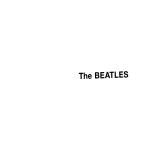
The Beatles(The White Album)
168 吉他谱
0 求谱
0 拨片
The Beatles(The White Album)专辑介绍
1968年是Beatles重要的一年。
由于日益增加的商业事务,Beatles成立了自己的Apple公司。在Baker街的专卖流行衣服的小商店由于管理不当开张不久就关闭了。在唱片业,"Lady Madonna"成为在美国的第十一个排名第一的歌曲。之后一年,第一张Apple公司的单曲"Hey Jude"推出了,这是一首感人的民谣,并演化成了自由发挥的团体歌唱方式,时长超过11分钟,在当时的排行榜冠军的位置上呆了很长时间。之后又发行了第三部动画,"Yellow Submarine"以卡通画的形式出现,它在动画技术方面的杰出获得了一致的赞同。
由于这段时间的作品很多,所以出了张双专辑,"THE BEATLES",完全是白色的封面,所以又被称为“White Album”。George Martin感觉做出了一张很优秀的唱片。它把Beatles的才能表露无疑,从"Back In The USSR",对Chuck Berry和The Beach Boys的深情的赞颂,到Lennon献给他母亲的"Julia",以及McCartney的作品"Blackbird",温馨忧郁的Ballad "While My Guitar Gently Weeps"。其中,洋溢热带风情的"Ob-La-Di, Ob-La-Da"以其优美的旋律成为英国排行榜第一,还有令人喘不过气来的"Helter Skelter",象征的是处于混乱状态的精神病人Charles Manson。
这是一张毁誉参半的专辑,好评者推崇备至,恶语者嗤之以鼻,但无论谁都承认这一点,这张专辑标志着“甲克虫”这支伟大乐队分崩离析的开始。这张专辑中令人激动感叹的作品实在不少,可是放在一处,显得过于不协调,如同一座建筑精美却结构庞杂的宫殿,每一间屋子都是一个杰作,结合在一起却让人感觉不知所云。“甲克虫”的四位成员在创作、录制这张专辑时常争执不休的情形,资深乐迷一听便知。或许,这也是60年代末期欧美一代人思想混乱、矛盾重重的真实写照。
这张专辑在滚石杂志选出的500张历代最强专辑中排名第10位。
Each song on the sprawling double album The Beatles is an entity to itself, as the band touches on anything and everything it can. This makes for a frustratingly scattershot record or a singularly gripping musical experience, depending on your view, but what makes the so-called White Album interesting is its mess. Never before had a rock record been so self-reflective, or so ironic; the Beach Boys send-up "Back in the U.S.S.R." and the British blooze parody "Yer Blues" are delivered straight-faced, so it's never clear if these are affectionate tributes or wicked satires. Lennon turns in two of his best ballads with "Dear Prudence" and "Julia"; scours the Abbey Road vaults for the musique concrète collage "Revolution 9"; pours on the schmaltz for Ringo's closing number, "Good Night"; celebrates the Beatles cult with "Glass Onion"; and, with "Cry Baby Cry," rivals Syd Barrett. McCartney doesn't reach quite as far, yet his songs are stunning -- the music hall romp "Honey Pie," the mock country of "Rocky Raccoon," the ska-inflected "Ob-La-Di, Ob-La-Da," and the proto-metal roar of "Helter Skelter." Clearly, the Beatles' two main songwriting forces were no longer on the same page, but neither were George and Ringo. Harrison still had just two songs per LP, but it's clear from "While My Guitar Gently Weeps," the canned soul of "Savoy Truffle," the haunting "Long, Long, Long," and even the silly "Piggies" that he had developed into a songwriter who deserved wider exposure. And Ringo turns in a delight with his first original, the lumbering country-carnival stomp "Don't Pass Me By." None of it sounds like it was meant to share album space together, but somehow The Beatles creates its own style and sound through its mess.
由于日益增加的商业事务,Beatles成立了自己的Apple公司。在Baker街的专卖流行衣服的小商店由于管理不当开张不久就关闭了。在唱片业,"Lady Madonna"成为在美国的第十一个排名第一的歌曲。之后一年,第一张Apple公司的单曲"Hey Jude"推出了,这是一首感人的民谣,并演化成了自由发挥的团体歌唱方式,时长超过11分钟,在当时的排行榜冠军的位置上呆了很长时间。之后又发行了第三部动画,"Yellow Submarine"以卡通画的形式出现,它在动画技术方面的杰出获得了一致的赞同。
由于这段时间的作品很多,所以出了张双专辑,"THE BEATLES",完全是白色的封面,所以又被称为“White Album”。George Martin感觉做出了一张很优秀的唱片。它把Beatles的才能表露无疑,从"Back In The USSR",对Chuck Berry和The Beach Boys的深情的赞颂,到Lennon献给他母亲的"Julia",以及McCartney的作品"Blackbird",温馨忧郁的Ballad "While My Guitar Gently Weeps"。其中,洋溢热带风情的"Ob-La-Di, Ob-La-Da"以其优美的旋律成为英国排行榜第一,还有令人喘不过气来的"Helter Skelter",象征的是处于混乱状态的精神病人Charles Manson。
这是一张毁誉参半的专辑,好评者推崇备至,恶语者嗤之以鼻,但无论谁都承认这一点,这张专辑标志着“甲克虫”这支伟大乐队分崩离析的开始。这张专辑中令人激动感叹的作品实在不少,可是放在一处,显得过于不协调,如同一座建筑精美却结构庞杂的宫殿,每一间屋子都是一个杰作,结合在一起却让人感觉不知所云。“甲克虫”的四位成员在创作、录制这张专辑时常争执不休的情形,资深乐迷一听便知。或许,这也是60年代末期欧美一代人思想混乱、矛盾重重的真实写照。
这张专辑在滚石杂志选出的500张历代最强专辑中排名第10位。
Each song on the sprawling double album The Beatles is an entity to itself, as the band touches on anything and everything it can. This makes for a frustratingly scattershot record or a singularly gripping musical experience, depending on your view, but what makes the so-called White Album interesting is its mess. Never before had a rock record been so self-reflective, or so ironic; the Beach Boys send-up "Back in the U.S.S.R." and the British blooze parody "Yer Blues" are delivered straight-faced, so it's never clear if these are affectionate tributes or wicked satires. Lennon turns in two of his best ballads with "Dear Prudence" and "Julia"; scours the Abbey Road vaults for the musique concrète collage "Revolution 9"; pours on the schmaltz for Ringo's closing number, "Good Night"; celebrates the Beatles cult with "Glass Onion"; and, with "Cry Baby Cry," rivals Syd Barrett. McCartney doesn't reach quite as far, yet his songs are stunning -- the music hall romp "Honey Pie," the mock country of "Rocky Raccoon," the ska-inflected "Ob-La-Di, Ob-La-Da," and the proto-metal roar of "Helter Skelter." Clearly, the Beatles' two main songwriting forces were no longer on the same page, but neither were George and Ringo. Harrison still had just two songs per LP, but it's clear from "While My Guitar Gently Weeps," the canned soul of "Savoy Truffle," the haunting "Long, Long, Long," and even the silly "Piggies" that he had developed into a songwriter who deserved wider exposure. And Ringo turns in a delight with his first original, the lumbering country-carnival stomp "Don't Pass Me By." None of it sounds like it was meant to share album space together, but somehow The Beatles creates its own style and sound through its mess.
Back In The U.S.S.R. (Remastered)
Dear Prudence
Glass Onion
Ob-La-Di, Ob-La-Da
Wild Honey Pie
The Continuing Story of Bungalow Bill
While My Guitar Gently Weeps
Happiness Is a Warm Gun
Martha My Dear
I'm So Tired
Blackbird (Remastered)
Piggies
Rocky Raccoon
Don't Pass Me By
Why Don't We Do It in the Road?
I Will
Julia
Birthday
Yer Blues
Mother Nature's Son
Everybody's Got Something to Hide Except Me and My Monkey
Sexy Sadie
Helter Skelter
Long, Long, Long
Revolution 1
Honey Pie
Savoy Truffle
Cry Baby Cry
Revolution 9
Good Night